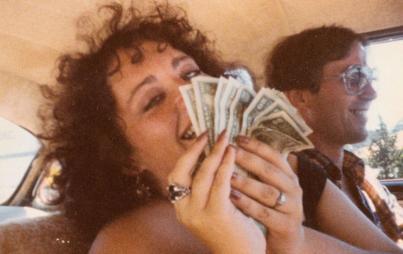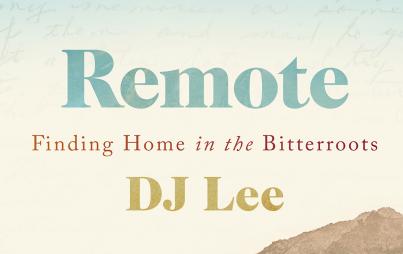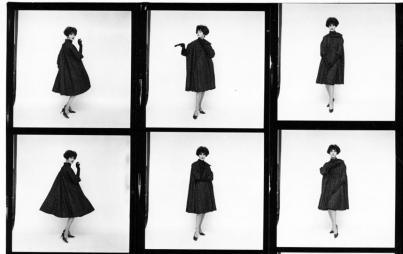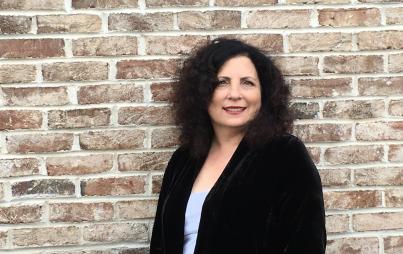
Thinkstock
I am under the distinct impression that when you're young, there is an inevitable naivete, an unshakeable if unfounded sensation that when you get older—whatever that means exactly—that you will "figure it out" as they say. You will traverse the narrow channels and escape the rushing tides. You will exact your place in the world; you will fret but not flounder, worry but not wane. Things would fall into place and you'd march along, right left, right left vaguely smiling into the wind as life's crests rose to meet your feet. You'd stumble and cry out cursing—of course—but surely a home with a quiet hearth was waiting to greet you.
But . . . by the age of 12—even 10 if you're especially astute or cynical—you are overcome with a prophetic feeling that things are decidedly not OK. No one has anything figured out. No one grows up and out of their misery and confusion—every struggle is merely replaced by a new one and the stakes only get higher.
And me? I was of the 10-year-old variety, actually the 7-year-old, variety if you want to know the truth. I was painfully aware of what seemed my pending wretchedness—the impossibly fleeting lightness of being that accompanied fourth grade. Like a riptide tugging at my ankles, I felt an incredible momentum drawing me ever closer to uncertainty and tumult, towards the unfulfilling job, the loveless marriage, the impossible weight of life not lived.
Some of this certainly had to do with my parents—to me they were both exceptional people and cosmically lucky; bright, attractive, well-educated, well-loved . . . and yet suffered so at the hands of their own decisions. If they couldn't figure it out, I certainly couldn't. I didn't stand a fucking chance in the face of it all. And this is to say nothing of the nightly news—genocide—or just the check-out woman at Marshall's, who looked so sad and tired beneath the fluorescent lighting. I was just sure we were all in purgatory.
Hate to get all doom and gloom on ya, but with every passing day, there was only another realization we were just slipping further away from understanding anything at all, moaning and stumbling along like cows off to slaughter.
But amid this creeping sorrow I found a strange silver lining. I found stories. I found the beauty of the minutia. Of each and every unextraordinary life. If this was the vessel I was given, if I was never to know what was actually going on, because by definition I only have the obvious confines of my maybe-pitiful, maybe-formidable humanoid mind . . . then I would sing its singularity as best and as loud as I could. It felt like the only way to ebb the darkness.
And so I became a writer, or really, I became a storyteller. And perhaps no one was more formative in this decision than Russell Haviland Tandy, my father's father. Storytelling at the dinner table was serious shit; the tales were involved, long-winded, filled with different voices, dramatic pauses, accompanying gestures and of course, a punch-line worth waiting for. I sat in stiff taffeta dresses, a pink sash buckling my belly, biding my time, carving my own tiny tales again and again polishing them in a clammy palm. My father—who had been raised on a hearty diet of far-fetched, but beautifully rendered yarns—easily surpassed my grandfather in length, breadth, energy and bullshit.
I'd often sit, beaming into the faces of those listening, relishing my father's undeniable power as he bobbed and weaved through his story, punctuating the final line with his surprisingly shrill laugh and a lunge of his upper body as his devoted audience burst into laughter beside him, clapping their hands in delight and holding their stomachs. He could do it every time. But often I'd realize—my eyebrows rumpling—that as he launched into another story . . . wait! I was there! And that's not what happened!
I knew enough not to confront him then, but when the crowd had dispersed or we were driving home, I'd say—"Daddy, you know that's not what happened, right?" But he'd only pleasantly snicker at my artlessness—"Of course that's not what happened, but did you see the look on their faces?!"
And so it went. But I realized that for me? Stories didn't have to be true or entertaining. The real beauty was achieving both. How wonderful to elicit the same reaction of joy, of horror, delight or incredulity . . . but everything had actually happened.
So that's what I set out to do. I honed my own skills, I seduced my own audiences—over beers, at awkward parties, over the phone, under the table. And no. It's not wrought with suicide or scandal or even (that) much sex. It's a small life—a simmering whimpering song really—but I will not slip silently through the grass with you, I cannot. I will bellow my fear, my mediocrity, my soft belly, my splotched and sunny face—I will bear my stench, my ha ha ha how I adore you because you're mine; mine to manipulate and adore and seal up and ship out to eternity.
And while I sometimes I wonder if I am a hopeless megalomaniac—self-obsessed, narcissist, and desperately clinging to my own quotidian trivialities as a delusional means to counter my mortality . . . does anyone careeeeeee . . . I holler into the valley, hearing my own voice echo . . .
But mostly I think it's about telling the story. With shame. With honesty. With humor and love and humility. Saying that I'm scared. Or that I love sex. Or that I'm screwed up and lonely and lost but I'm also lucky as fuck. To say that I need my friends, that without them I would surely perish. To say that I might be too erratic and forgetful to ever have a child because I really might forget to hold its hand and then it runs into traffic and then I have to kill myself.
To say. To tell. To be read and heard and maybe even understood. How wonderful and woeful everything is.
So this year I've tried to call my own bluff. I helped found a site, nay a place, where we could all say what we needed to say and grasp hands and stride with a little more confidence into the fray, keeping the darkness, if not totally at bay, at least from our upturned faces. I've written about love lost—the "one that got away"— and my first and revelatory orgasm. I've confessed to being a chronically smelly girl and the recent insertion of my IUD. I've talked about my crushing anxiety surrounding babies and the not-so-gentle tug of motherhood as well my current heart-baggage, of being terrified of falling in love again. Even though it's happening as we speak.
I've also thrown a few people under the bus (lovingly of course) including both my parents, but particularly my father, whose nude photos of his then-girlfriend I accidentally picked up at a CVS at 15. Then there are those I have not-so-lovingly thrown under the bus like the bigoted homophobe I accidentally went on a date with . . . and even myself. Because no exhibitionist would be complete without the proverbial self-loathing dissection of getting old—of turning not just 30, but 31.
And in 2015? I can only ask you to keep reading, keep telling. Keep singing your song beside me.






